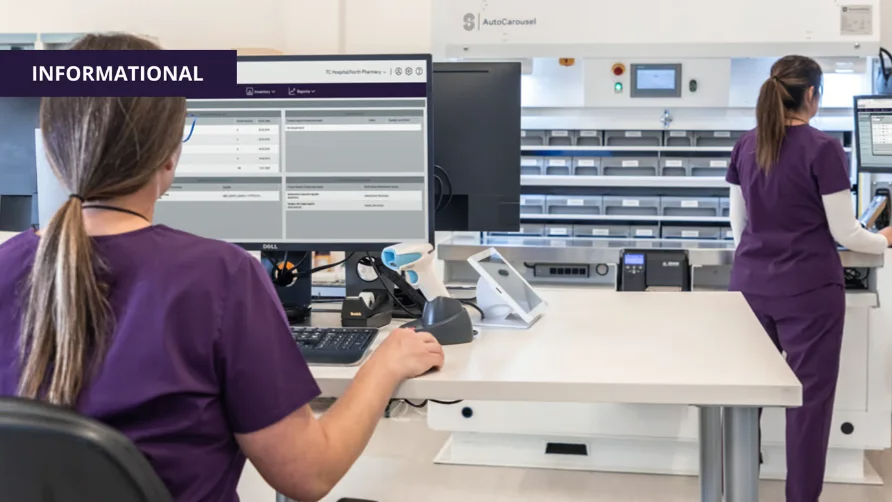Which Operational Approach Is Right For Your Hospital Workflow?
Given the many challenges modern healthcare organizations face – like drug shortages, labor challenges, and digital security concerns – the drive towards efficiency, cost reduction, and enhanced patient care has led many health networks to re-evaluate their internal workflows. As a result, the idea of Consolidated Service Centers (CSCs) and their benefits versus Integrated Service Centers (ISCs) has been placed under the microscope. This blog – and webinar – explores these models, focusing on their impact on hospital operations and patient care, and whether or not they’re right for your hospital’s operations.
Consolidated Service Centers (CSCs) in Healthcare
Simply put, Consolidated Service Centers are a strategic approach to managing a hospital’s workflow by centralizing these functions in a single location. This model is designed to handle the efficient procurement, inventory management, and distribution of medications and/or hospital supplies.
Some Benefits of CSCs Include:
— Cost Savings: By centralizing procurement and inventory management, hospitals can leverage economies of scale, negotiate better pricing with vendors, and reduce waste, leading to significant cost savings.
— Increased Efficiency: CSCs streamline the supply chain process, reduce redundancy, and improve the flow of goods and services, which can lead to more efficient hospital operations.
— Enhanced Quality Control: Centralization allows for better standardization of processes and quality control, ensuring that supplies and services meet the required standards.
— Improved Patient Care: With non-clinical functions being efficiently managed through the CSC, healthcare professionals can focus more on patient care rather than administrative tasks.








